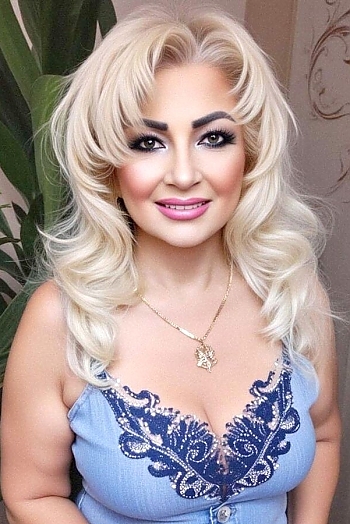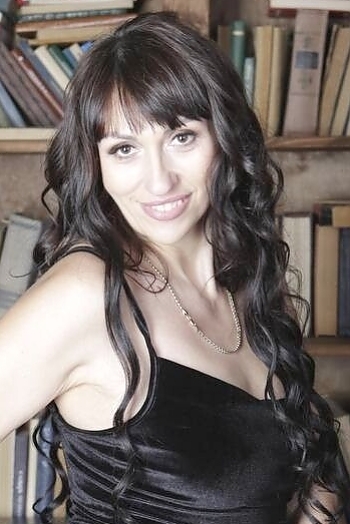Widowed dating presents a unique landscape, navigating love after loss. It requires sensitivity,patience and self-awareness.
Navigating New Beginnings After Loss
Embarking on new beginnings after the loss of a spouse is a delicate process. It necessitates honoring the past while embracing the potential for future happiness.Approaching dating with a casual yet enthusiastic attitude can foster a more positive experience.Remember that commitment to a late spouse doesn't preclude finding joy and connection again. Prioritize self-awareness and emotional readiness as you navigate this transformative journey.
Understanding the Grief Process
Grief is a complex, personal journey. Acknowledging and understanding it is crucial before considering new relationships.

Acknowledging and Honoring Grief
Acknowledging and honoring grief is paramount in the healing process. It involves recognizing the depth of your loss and allowing yourself the space to feel. It’s important to understand that grieving is not a linear process; there will be ups and downs. Allow yourself to feel without judgment. Remember, it's okay to grieve the loss of your spouse without diminishing any future relationships. Embrace the memories and experiences you shared, allowing them to inform your path forward.
Individual Timelines for Healing
Individual timelines for healing vary significantly. There's no set timeframe to start dating again after the loss of a spouse; it's a deeply personal choice. Avoid comparing your journey to others; some may feel ready sooner, while others need more time. Well-meaning friends and family may offer encouragement, but trust your own instincts. Grief is not linear, and healing takes time. Be patient with yourself, and allow the process to unfold naturally.
When is the Right Time to Start Dating?
Determining the "right time" is subjective. It hinges on emotional readiness, not external pressures or arbitrary timelines.

Personal Readiness vs. Societal Expectations
Personal readiness should always outweigh societal expectations when considering dating after loss. Friends and family may have opinions, but prioritize your own emotional well-being. There is no universal timeline; the "right time" is when you feel genuinely ready to explore new connections. Avoid succumbing to pressure or feeling rushed; this is a deeply personal decision. Focus on your own healing and self-discovery before considering dating.
Assessing Emotional Availability
Assessing emotional availability is crucial before entering the dating world. Ask yourself if you're genuinely open to forming a new connection and sharing your life with someone. Consider whether you're still consumed by grief or if you have the emotional capacity to invest in a relationship. Are you dating to fill a void, or are you genuinely seeking companionship? Honesty with yourself is paramount. If you're unsure, seeking guidance from a therapist can provide clarity.
Challenges and Considerations in Widowed Dating
Widowed dating presents unique challenges. Navigating grief triggers and balancing memories with new relationships requires careful consideration.
Dealing with Grief Triggers
Dealing with grief triggers is an essential aspect of widowed dating. Be prepared for moments that may unexpectedly evoke sadness or memories of your late spouse. Identify potential triggers, such as anniversaries or familiar places, and develop coping mechanisms. Communicate openly with your partner about your feelings and needs. Remember that experiencing grief triggers is normal, and it doesn't diminish your ability to form new connections. Practice self-compassion and allow yourself time to heal.

Balancing Memories with New Relationships
Balancing memories of your late spouse with the development of new relationships is a delicate art. It's important to honor the past while embracing the present and future. Share memories of your late spouse with your new partner when appropriate, but avoid dwelling excessively on the past. Ensure your new partner feels valued and appreciated for who they are, not compared to your previous spouse. Create new memories together while respecting the significance of your past. Open communication and mutual understanding are key.
Communicating with Potential Partners
Open and honest communication is essential. Sharing your past and setting realistic expectations fosters understanding and builds trust.
Honesty About the Past
Honesty about the past is paramount when communicating with potential partners. Be open about your loss and your grieving process. Share information about your late spouse when it feels appropriate, but avoid overwhelming your new partner with excessive details. Explain your emotional needs and any potential triggers you may experience. Transparency fosters trust and allows your partner to understand your journey. Be mindful of their feelings and create a safe space for open communication.

Setting Realistic Expectations
Setting realistic expectations is vital for successful widowed dating. Understand that new relationships take time to develop, and avoid rushing into anything too quickly. Be clear about your emotional capacity and your willingness to commit. Acknowledge that your grieving process may continue, and that there will be ups and downs. Communicate your needs and boundaries openly. Avoid comparing your new partner to your late spouse, and focus on building a unique connection based on mutual respect and understanding.
Online Dating for Widows and Widowers
Online dating offers a platform for connection. Authenticity and managing expectations are key to navigating this digital landscape.
Creating an Authentic Profile
Creating an authentic profile is crucial for attracting genuine connections in online dating. Be honest about your status as a widow or widower and your reasons for seeking a new relationship. Share details about your interests, values, and what you're looking for in a partner. Use recent photos that accurately represent you. Avoid clichés and generic statements; let your personality shine through. Be open and approachable, but also set clear boundaries. Authenticity attracts like-minded individuals.

Managing Expectations in the Digital Age
Managing expectations is essential in the fast-paced world of online dating. Be realistic about the time it takes to build meaningful connections. Not every match will be a perfect fit, and rejection is a normal part of the process. Avoid getting discouraged by superficial interactions or ghosting. Focus on quality over quantity and prioritize genuine connections. Remember that online dating is just one tool for meeting people, and it's important to maintain a balanced perspective. Be patient and persistent, and don't lose sight of your goals.
Building Meaningful Connections
Meaningful connections require time and effort. Prioritize friendship and respect boundaries as you navigate new relationships after loss.
Focusing on Friendship First
Focusing on friendship first can lay a strong foundation for a lasting relationship. Take the time to get to know someone on a deeper level before rushing into romance. Share common interests, engage in meaningful conversations, and build trust. Friendship provides a safe space for vulnerability and allows you to assess compatibility without the pressure of romantic expectations. A strong friendship can evolve into a loving partnership, or it can remain a valuable connection regardless of romantic potential.

Moving Slowly and Respecting Boundaries
Moving slowly and respecting boundaries are essential for healthy relationships, especially in widowed dating. Avoid rushing into intimacy or commitment. Take the time to build trust and assess compatibility. Communicate your needs and boundaries clearly and respectfully. Be mindful of your partner's boundaries as well. Respecting each other's pace and limits fosters a safe and comfortable environment for growth and connection. Patience and understanding are key to building a lasting and fulfilling relationship.
Self-Care and Emotional Well-being
Self-care is paramount. Prioritizing mental health and seeking support are crucial during the widowed dating journey.
Prioritizing Mental Health
Prioritizing mental health is crucial during the widowed dating process. Engage in activities that promote well-being, such as exercise, mindfulness, or creative pursuits. Allow yourself time for relaxation and self-reflection. Seek professional help if you're struggling with grief, anxiety, or depression. Remember that taking care of your mental health is not selfish; it's essential for your overall well-being and your ability to form healthy relationships. Self-care is an act of self-respect and empowers you to navigate challenges with greater resilience.
Seeking Support from Friends, Family, or Professionals
Seeking support is a sign of strength, not weakness. Lean on trusted friends and family members for emotional support and understanding. Consider joining a support group for widows and widowers to connect with others who understand your experience. Don't hesitate to seek professional help from a therapist or counselor if you're struggling to cope with grief or navigate the complexities of dating. A supportive network can provide guidance, encouragement, and a sense of community during this transformative journey.

Embracing Hope and Happiness
After loss, hope and happiness are attainable. Embrace new possibilities and the potential for companionship and joy.
Finding Joy and Companionship After Loss
Finding joy and companionship after loss is not only possible but also a testament to your resilience. Allow yourself to experience new adventures, pursue passions, and embrace the opportunity to build meaningful connections. Remember that grief and joy can coexist; honoring the past does not preclude embracing the future. Be open to new experiences and relationships, and trust that you deserve happiness. Prioritize self-care, connect with supportive people, and believe in your capacity to find love and fulfillment again.




















